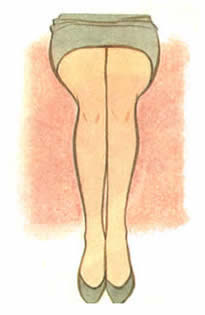 Restless Legs Regimen
Restless Legs Regimen
Summary: Use a 1:1 ratio calcium magnesium multimineral, or just plain magnesium, and The Water Cure. Ensure adequate potassium in the diet.
If results are not apparent within 24 hours, ensure that enough of the multimineral is being used to provide 50% RDA of calcium (500mg) and 100-125% RDA of magnesium (400-500mg) or more in a well absorbed form, such as amino acid chelate, MCHA, citrate, or other chelated form. Good choices include such supplements as Now Full Spectrum Mineral Caps, Enzymatic Therapy Kreb's Cycle Chelates, or Solaray Cal-Mag Citrate, among many others. See the Multimineral section for more information.
NOTE: Sometimes Restless Legs Syndrome is caused JUST by magnesium deficiency and since calcium can interfere with magnesium absorption, using a magnesium supplement with no calcium may be necessary, especially if the diet is already rich in calcium.
Magnesium stores in the body can also be increased by taking hot baths with epsom salts (also known as magnesium sulfate). Use 1 cup in the bath. Epsom salts can also be used a decent magnesium supplement internally, too. Only small amounts are necessary (1/4 to 1/2 tsp per day - not enough to be a strong laxative).
In some cases it is not even necessary to use a good multimineral and the cheapest 2:1 ratio calcium carbonate magnesium oxide combination supplement from the drugstore will work fine. For long term use, though, most people prefer to use a well absorbed form of calcium and magnesium. See the multimineral section for more information.
In some instances it may be crucial to use the Water Cure to ensure the nutrients are being distributed to body tissues. The salt (Real or Pink Salt) may be useful, too, as sodium is also one of the base minerals that will help this disorder, although calcium, magnesium, and potassium are usually more important.
To ensure adequate potassium in the diet, eat plenty of fruit and vegetables. A good source of potassium that is easy to consume is pineapple juice. Orange juice, although rich in potassium, should in general be avoided. See Eat Right 4 Your Type.